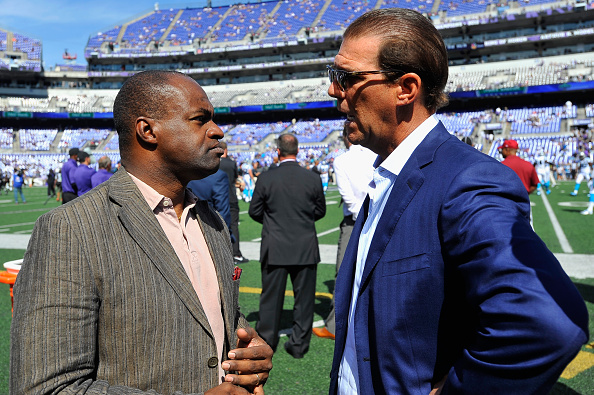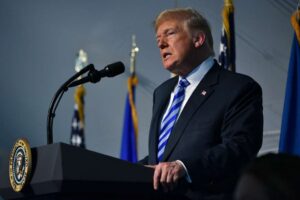Illinois Senate Bill 12 has received more attention from the media than a similar piece of legislation on a state level has in years. That’s because the players association/union from two of the five biggest professional sports leagues in North America – the National Football League and Major League Soccer – have decried the bill as carrying negative consequences for their memberships.
The bill, which has the endorsement of the NFL’s Chicago Bears chairman George McCaskey, would reduce the age through which employers are required to pay a wage differential to permanently disabled workers from 67 to 35.
The NFLPA has issued a statement on its position that the bill unfairly discriminates against professional athletes, treating them differently than the rest of the general population. The MLSPU called the legislation a money grab by owners and a shirking of their responsibilities.
The current push by both player unions is to prevent the legislation from becoming law. The fact is that Illinois isn’t the first state with professional sports franchises within its borders that has attempted this.
Similar Drama in Louisiana
In 2014, a similar bill that would have effected workers compensation for professional athletes nearly became law in the state of Louisiana, but for the involvement of the NFLPA.
That proposed legislation had a different design, as it would have figured benefits based on the player’s salary at the time they were injured, not on future earnings. The NFLPA argued that such calculations would be discriminatory toward players who were injured in the off-season, when their pay is much lower than what they receive in-season.
Using the star power of locally-revered New Orleans Saints players such as quarterback Drew Brees, the NFLPA pushed back against the bill. Though the NFLPA was involved in negotiations on the bill’s language, there was never a version that the association endorsed. After passing the Louisiana House and a Louisiana Senate Committee, the bill’s author in the House pulled the legislation.
The leverage that the NFLPA used at the time was the threat of refusing to consider expanding the NFL playoffs, something that the league’s owners were contemplating at the time. That has become a back burner issue in the years since, with other league concerns taking precedence. So far the NFLPA, joined by the MLSPU, is following that game plan of making threats of undesirable consequences for owners to keep this legislation in Illinois from becoming law.
The NFLPA’s and MLSPU’s Leverage Against SB12
While neither the MLSPU nor the NFLPA have made public confirmations of lobbyist(s) representing their interests in Springfield, despite NFLPA head DeMaurice Smith’s claim that the Bears have hired a lobbyist, the weapon of choice seems to be the media.
Frankly, none of the Bears players have the same brand power even in the state of Illinois that Brees has in Louisiana, so Smith himself has become the face of the NFLPA campaign. He has made the leverage that the NFLPA holds clear to not just owners, but the public at large, in a radio interview on 670 The Score:
I will tell you from the bottom of my heart that this union will tell every potential free agent player, if this bill passes, to not come to the Bears. Because, think about it, if you’re a free agent player and you have an opportunity to go play somewhere else where you can get lifetime medical for the injury you’re going to have, isn’t a smarter financial decision to go to a team where a bill like this hasn’t passed?
Bob Foose, the MLSPU director has said that he would consider similar dissuading regarding the Chicago Fire if the bill is passed as well. There has been no official comment from the NHLPA regarding the Chicago Blackhawks, the NBAPA regarding the Chicago Bulls, or the MLBPA and either the Chicago Cubs or Chicago White Sox.
The best possible scenario for both unions is that this legislation never becomes enacted, and for more reason than publicly stated. Backing up such threats of “blacklisting” Illinois’ teams could become a precarious undertaking.
Why the NFLPA May Not be Able to Back Up its Threat
If SB12 should become law, it’s likely that the NFLPA will back off its threat of outright blacklisting the Chicago Bears. Not only is the threat of a complete boycott unrealistic, but could be illegal as well.
The reality is that there are only 32 teams in the NFL, who can only carry rosters of 53 active players in the regular season. That’s 1,696 jobs for thousands of hopeful NFL players each season. Even fewer of those roster spots are available to free agents every off-season, as many of those roster spots are occupied by players under contract and incoming rookies. For every current and future free agent to willingly pass on contract offers made by the Bears would be a tremendous showing of solidarity. Such players would not only risk losing money by signing with another team, but might risk not getting a contract at all just to support the union’s stance on this matter.
When players sign with the Bears despite the union’s advice to not do so, again under the assumption that SB12 becomes law, the NFLPA would be in poor position to penalize those players. The commerce clause of federal labor law would prevent the NFLPA from making abstaining from signing with the Bears a condition for membership. Kicking out such a player would likely trigger an antitrust lawsuit against the NFLPA, arguing that finding employment in the league without membership in the players association is nearly impossible.
The players association is free to advise players not to sign with any team for any reason, but can’t discipline them for refusing that advice. That’s not to say that players, even in smaller groups, couldn’t make the decision for themselves not to sign with any team for any reason. The key differentiation is that the players make those decisions free of the threat of losing their good standing with their union. In this case, it’s that union that they should look to for relief in this situation, not the law.
The Players’ Best Course of Action is at the Bargaining Table
As was astutely pointed out by Sheila Dingus of Advocacy for Fairness in Sports, the best course of action for all players unions is to collectively bargain the benefits they want.
In this specific legislation, it would not be illegal for the Bears or the Fire to voluntarily exceed the requirement set by the state if SB12 becomes law. There would be no legal requirement for either franchise to change their current workers compensation policies, simply a legal ability for them to do so that they are currently denied.
The fact that sufficient long-term disability coverage for injured players isn’t already part of the collective bargaining agreement between these leagues and their unions represents a failure by those parties to provide for that obvious need, as represented by Smith’s own assertion that NFL players have a 100 percent injury rate.
An argument that the players are at a disadvantage at the bargaining table is legitimate, but the same could be said when it comes to state legislatures. In a political system that favors the wealthy, it again becomes a matter of billionaires versus perhaps millionaires if they’re lucky. In the question of which party can make more frequent and lucrative campaign donations, hire lobbyists and better build relationships with legislators, team owners enjoy a stark advantage.
It stands to reason that if sustaining, if not improving, workers compensation for its athletes is an important enough matter to threaten trying to convince players to give up jobs in order to support the cause, then it would be important enough to threaten action that the union actually could legally take at the bargaining table. If the MLSPU or NFLPA are unwilling to even talk about that, they can’t vilify the owners when they take advantage of their lack of action.







